Tell Me That You Love Me 2023 K Drama Episode 15-16

It’s the quiet ones that’ll get ya. This has been a slow and deliberate ride that told us its ending in its very first lines, but that doesn’t make it hurt any less. Like the characters themselves, we went in with a hunch that the relationship wouldn’t work out, but we let ourselves feel deeply anyway — only to walk away heartbroken.
We open this week with the idea of home. Mo-eun has located Jin-woo’s childhood house, which he’s searched for his whole life, and when he meets her there, he realizes that his desire to find it was really a hope that someone would be waiting for him when he arrived (*heart cracks in half*).

They sit by a campfire outside the house and Mo-eun tells Jin-woo about his mother. He’s in shock and isn’t sure if he wants to meet her and disrupt her life. Mo-eun advises him to follow his heart, before she starts pouring out her own heart.
She tells Jin-woo about the dream she had — the one where they were laughing and talking easily together and she felt so comfortable. She recounts how in real life, things got more difficult for her as their relationship went on. With her poor sign language, she couldn’t convey her feelings precisely, and she didn’t want to argue over text, so she ignored him. She apologizes, and then so does he “for making her have that kind of dream.” Mo-eun concludes, “We’re not together to feel sorry for each other.” Oof. What a powerful punch of dialogue to end such a lengthy conversation about why it’s not working.

But no matter how much pain their relationship appears to cause Mo-eun, she wants to keep fighting for it. Later on, she goes to Jin-woo’s house and says that all the ways they’ve had to communicate (writing, signing, translating, using their fingers on each other’s palms) have been a little difficult, but she’s okay. She tells him this with finality, as if to put him at ease.
But we can see she’s anything but at ease. She’s disappointed when she can’t yell over to him at the grocery store. There’s no exuberance when she interacts with him, like there is with others. And at one point, she tells him to turn on some music, which he does, and then she immediately shuts it off behind his back without communicating anything to him.

Then comes a horribly heart-shattering moment. Our leads are lying in bed with their backs to each other and things are clearly tense between them. Jin-woo opens the translator on his phone without Mo-eun noticing and starts typing, “Shall we talk?” But before he finishes, she says out loud to herself, “It’s so frustrating.” And that line appears on the screen of his translator app for him to read. (This moment physically hurt me. Youch.)
After Jin-woo knows how Mo-eun really feels, he puts the phone down and just lies there, but they meet the next day so he can do what needs to be done. Rather than continuing to be sorry to one another, he ends things by thanking her. He thanks her for approaching him when he didn’t have the courage to love again. And says it’s thanks to her that he thinks he’ll be okay for the rest of his life. “If I did something that made you sad, it wasn’t because I didn’t love you, but because I wanted to hide what I was ashamed of.”


Mo-eun is sobbing and, at first, I thought it was because of the content of his words. But when he stops signing, she cries that she can’t understand. So, he just finishes with this: “Thank you for trying so hard for me.”
As he walks away from her, Mo-eun understands that it must have been hard on him too. “Even though he thanked me for the efforts I made for him, I’ve been a coward.” Later, as the two are separately thinking back on each other, she remembers Jin-woo telling her, right at the beginning, that they weren’t a good match and that she should find someone better suited for her.

Oh my, the themes this drama is pushing up. There’s a moment early in the episodes when Mo-dam asks, “Why is their relationship so painful?” (meaning Mo-eun and Jin-woo). And it’s a great question because there’s nothing outwardly wrong. But when we see flashbacks of when they first met and started liking each other, it’s clear how well developed the story is.
Their beginning is so natural and believable, and then their descent into an unnamable kind of discomfort is so insidious. There’s nothing monumental that got them to this point. All the day-to-day life stuff — all the stuff I was begging to see in their romance — is also the stuff that chipped away at Mo-eun. It’s not Seo-kyung, or even jealousy, that ultimately intervened. It’s their differences. They care about each other, but the gap in how they want (or are able) to live their lives is too great.

While Mo-eun is tending to her broken heart, Jo-han is there to comfort her, as he always is. She tells him that at some point, she started to want things from Jin-woo that he couldn’t do for her. She feels bad about feeling lonely. But Jo-han responds that there must have been a reason she was lonely, and also, it was her first time loving Jin-woo, so she didn’t know how to do it. (What a great way to look at it.)
He’s speaking from his own experiences, secretly loving Mo-eun, and he tells her not to blame herself. Mo-eun wants the same for Jo-han. She feels grateful to him, but she wants him to find someone that doesn’t make him feel lonely. “I hope you meet someone who sees you, understands you, and loves you. Don’t try too hard or suffer.” This is a tough moment, but I’m glad she’s kindly telling him to move on. He turned out to be a really great friend to her, never getting in her way and supporting her at every step.


In other resolutions, Seo-kyung and Jin-woo have a moment where they finally let each other go. Seo-kyung acknowledges that maybe she misses the past more than Jin-woo himself, and we get this lovely little quip: “Our time apart was like a diary to catch up on. Even if we try to write something for the missed days, we’re not the old us anymore. Our time has passed.” (So true!)
In a very brief encounter, Jin-woo goes to meet his mother. Still full of gratitude, he thanks her for liking his paintings so much, even though her condition makes it so that she doesn’t know what’s going on. She touches his face and says he looks so much like her son. And Jin-woo is sobbing.
And in another round of thank yous, Mo-eun visits her mom and reveals that she knows that she’s not her birth mother. She wants to say thanks for choosing her, but Mom counters that Mo-eun is the one that chose her.

Then we’re off to a one-year time skip, where our leads hearts have had time to heal. Mo-eun has landed the leading role in a play (the one we saw her perform in earlier as an understudy). And Ji-yoo has followed Mo-eun’s example to live out her dreams by opening a café where people go to paint. At the café, Mo-eun recalls the time she told Jin-woo that one day she’d smell paint and think of their moment together. She smiles, but also begins to cry. (Well, we knew this memory was coming.)
Jin-woo returns to Korea after a year abroad and reunites with his former art students. (The scoop is: Tae-ho knows sign language now and is full-on dating his classmate, so that’s cute.) As a gift, the students give Jin-woo a ticket to a play, where the theater does simultaneous translation in sign language. Of course, it’s Mo-eun’s play.


Jin-woo attends and our leads see each other before Mo-eun’s performance but they don’t interact. When she gets out on stage, she looks for him in the audience. Then she starts the monologue that we heard in the opening lines of the drama.
They’re the lines of the play, but she’s saying them directly to Jin-woo, and he’s taking them personally. They both have tears in their eyes.
After the performance, she runs outside to find him. He reintroduces himself, they smile, and then they walk toward each other. The scene cuts and the final credit shot has them walking down a train track in the spot where they broke up. They’re holding hands, and when they get a distance away, we hear Jin-woo narrate, “I love you, Mo-eun.” Is it a memory? The future? Or an imagined future that will never be? I believe it’s the third one — the happy life they envisioned together, but that just can’t come to pass.

Kudos to this drama for keepin’ it real. I’m not familiar with the original Japanese version of this story from the 1990s, but the writing in this remake is excellent. I love that everything we need to know about the ending is in the first episode, and yet, we keep up hope. Talk about a way to put the audience in the shoes of your characters.
And the direction lines up perfectly with the writing. This is a very dialogue-driven drama, but most of the dialogue is written or signed. Long conversational exchanges form the main scenes and it’s impressive that it’s still tense and exciting just to watch people write. The emotion is raw and always at the front. And the interactions are realistic and natural — especially when the leads have difficulties between them. So much of that also owes to the performances, especially Jung Woo-sung who conveys everything with his face. For a story about miscommunication, or lack of communication, so much is communicated in the smallest details.

The larger themes left me with a lot to think about too because, at the end of the day, this is story about difference. We have a character who can’t hear and another who can — and they have a specific set of problems — but their troubles are broad and can be applied to all kinds of relationships. Differences in culture, personality, worldview (whatever) can all get in the way of just trying to love each other. So, is there a threshold for how big those differences can be if a relationship is going to work? Or is it mostly about each partner’s disposition?
I love that the drama gave us both angles. On one hand, we saw how things played out with Seo-kyung and Jin-woo back in the day, and on the other, we saw how Ki-hyun and So-hee negotiated their relationship. Seo-kyung’s character could be seen as a kind of foreshadowing for what was to come with Jin-woo and Mo-eun, but ironically, it’s because Jin-woo grew from his first relationship that he lets Mo-eun go. The tragedy here is that they break up because they do love each other, not because they don’t.
The big question the drama poses is: is it okay to give it your all if you know it’s going to cause you a lot of heartache? And it answers in the affirmative. Growth is in the process, not the outcome. And our leads had a great love story, even if it didn’t last.

Other Articles
-
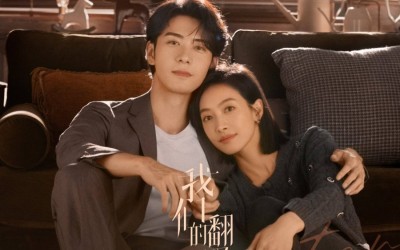
Our Interpreter (2024) C Drama Episode 10
-
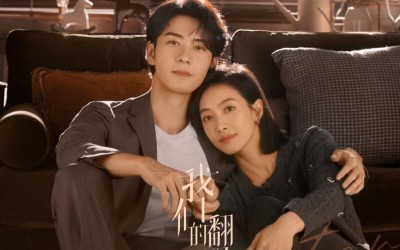
Our Interpreter (2024) C Drama Episode 9
-
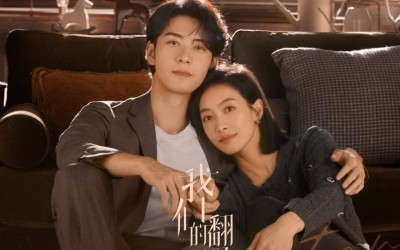
Our Interpreter (2024) C Drama Episode 8
-
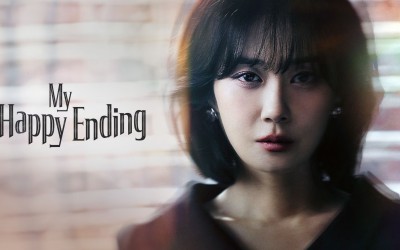
My Happy Ending (2023) K Drama Episode 6
-
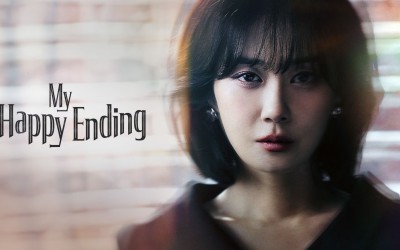
My Happy Ending (2023) K Drama Episode 5
-
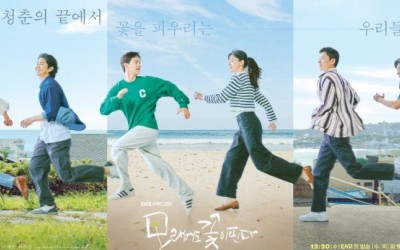
Like Flowers in Sand 2023 K Drama Episode 10
-
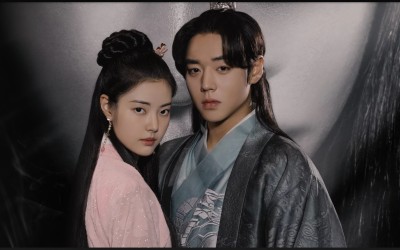
Love Song for Illusion (2024) K Drama Episode 5
-
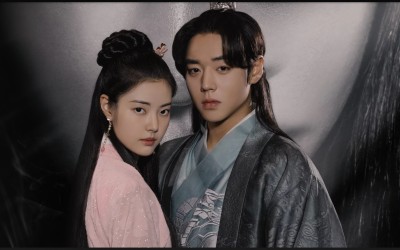
Love Song for Illusion (2024) K Drama Episode 4
-
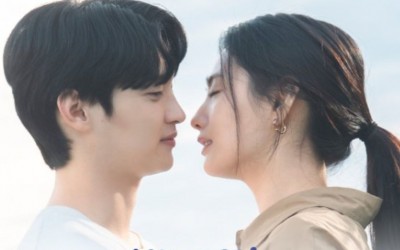
My Man Is Cupid (2023) K Drama Episode 14
-

My Demon (2023) KDrama Episode 14
-
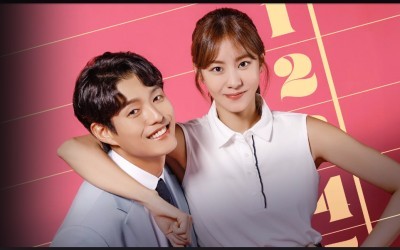
Live Your Own Life (2023) K Drama Episode 33
-
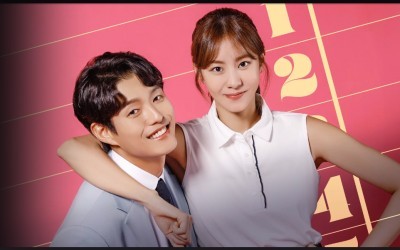
Live Your Own Life (2023) K Drama Episode 32
Genres
- Accident
- Action
- Adventure
- Alien
- Amnesia
- Ancient legend
- Animals
- Animation
- Arthouse
- Artificial Intelligence
- Award Winning
- Based on a Comic
- Based on True Story
- Betrayal
- Biography
- BL
- Bodyguard
- Bromance
- Business
- Chambara
- Childhood
- Christmas
- Cohabitation
- Cold Man
- Coma
- Comedy
- Concert
- Conglomerate
- Conspiracy
- Contract Relationship
- Corruption
- Crime
- Criminal
- Curse
- Dance
- Deity
- Demon
- Detective
- Disability
- Disaster
- Documentary
- Drama
- Eastern
- Educational
- Entertainment
- Environment
- Erotica
- Espionage
- Exorcism
- Exploitation
- Fairy
- Family
- Fantasy
- Fashion
- Feminism
- Food
- Foreign
- Friendship
- Game Developer
- Gangster
- Geishas
- Gore
- Goryeo Dynasty
- Grudge
- Gumiho
- Harem
- Hidden Identity
- Historical
- Horror
- Hostage
- Human
- Hypnotism
- Idol Drama
- Indie
- Instructional
- Investigation
- Jidai Geki
- Josei
- Kidnapping
- Kung Fu
- Law
- legal
- Lesbian
- LGBTQ+
- life
- Love Triangle
- Mafia
- Magic
- Manga
- Manhua
- Martial Arts
- Mature
- Medical
- melodrama
- Mermaid
- Military
- Miniseries
- Misunderstanding
- Monster
- Murder
- Music
- Musical
- Mystery
- Mythology
- Nature
- Neighbours
- Noir
- Novel
- Omnibus
- One shot
- Parody
- Phobia
- Poison
- police
- political
- Power Struggle
- Prison
- Professional
- Programmer
- psychiatry
- Psychological
- Reality
- Reality Show
- Reality TV
- Rebellion
- Religion
- Remake
- Republic
- Resurrection
- Revenge
- Rich Man
- Robot
- Romance
- RPG
- Rural
- Samurai
- Scholar
- School
- Sci-fi
- Seinen
- Serial Killer
- Short
- Sismance
- Sitcom
- Slapstick
- Slice of Life
- Society
- Soulmates
- Sports
- Supernatural
- Survival
- Suspense
- Swordsman
- Taiga drama
- Teamwork
- Tearjerker
- Teen
- Terrorist
- Thief
- Thriller
- Time Travel
- Tokusatsu
- Tomboy
- Tragedy
- Tragic Past
- Transmigration
- Trauma
- Treason
- Triad
- Underworld
- Unrequited Love
- urban drama
- Vampire
- Variety
- Variety show
- War
- Warrior
- Web Series
- Webtoon
- Werewolf
- Western
- Witch
- Workplace
- Wuxia
- Yakuza
- Yaoi
- Youth
- Yuri
- Zombie

